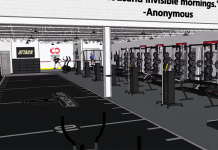Did you see any of the “Matrix” movies? Have you heard people talk about their vacations from work as, “Getting off of the grid?” In this modern era where we are constantly plugged into some sort of communication technology, we are rapidly losing our ability focus in on one thing at a time. Now it seems impossible to unplug from the information grid as we become more and more addicted to rapid communication.
It used to be a badge of honor to say that you were multi-tasking both at home and in the workplace. But now, multi-tasking has morphed into a frenetic need to access, react, and respond to all communications, taking less and less time to think, interpret and reflect upon the information being sent to us.
The Harvard Business Review recently asked, “Why is it that between 25 and 50 percent of people report feeling overwhelmed or burned out at work?”
The answer is eye-opening to say the least:
“It’s not just the number of hours we’re working, but also the fact that we spend too many continuous hours juggling too many things at the same time.
What we’ve lost, above all, are stopping points, finish lines and boundaries. Technology has blurred them beyond recognition … The biggest cost — assuming you don’t crash — is to your productivity. In part, that’s a simple consequence of splitting your attention, so that you’re partially engaged in multiple activities but rarely fully engaged in any one. In part, it’s because when you switch away from a primary task to do something else, you’re increasing the time it takes to finish that task by an average of 25 percent.
But most insidiously, it’s because if you’re always doing something, you’re relentlessly burning down your available reservoir of energy over the course of every day, so you have less available with every passing hour.”
What this tells me is that since we have blurred or completely lost our work stoppage boundaries, we need to create new ones for ourselves. This will take a whole different kind of discipline; a discipline that dictates that we STOP working at regular intervals.
This does seem counter-intuitive, I know. But the fact is that we used to have work stoppages built in for us over the course of the standard work day. Technology has erased the boundaries of work being done only in the formal workplace. Now, work can be done from anywhere at any time. This means that if we don’t make our own down time, we run the risk of diminishing our performance and eventual burning out.
Now that’s something to stop and think about.












